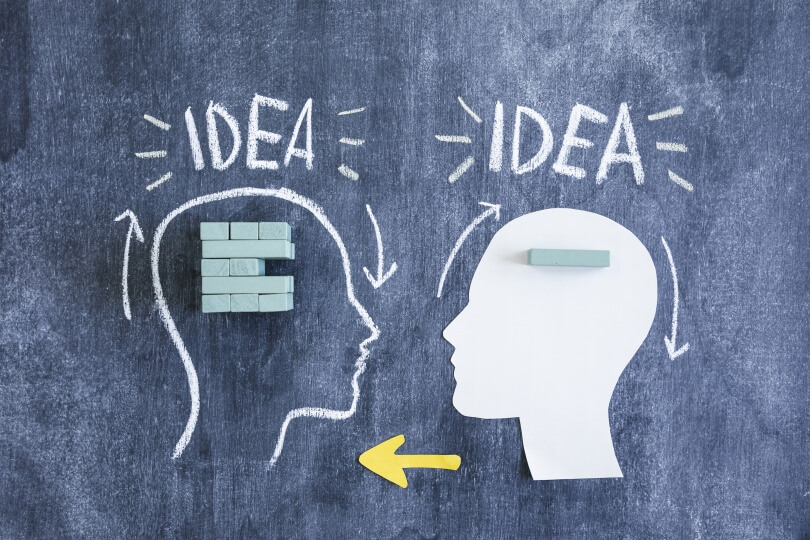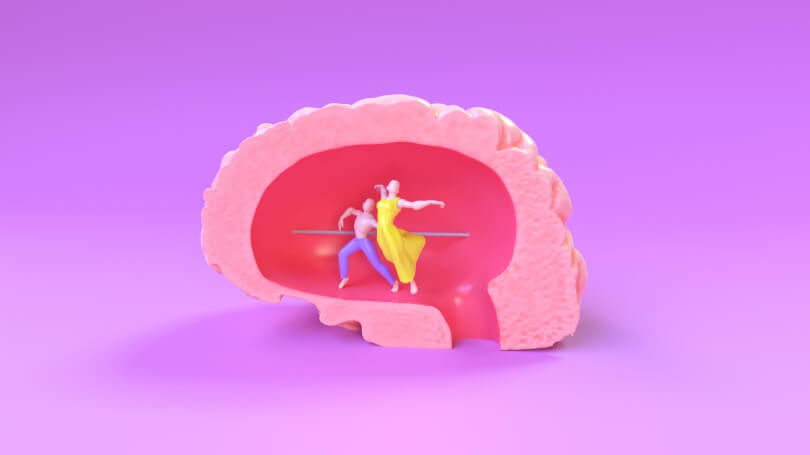Table of Contents
The Effect of Media on Subconscious Habit Formation

The Mechanics of Subconscious Influence Through Media
Understanding the interconnected realm of subconscious media effects and habit formation media is paramount in unpacking the intricate ways media consumption habits shape our lives. Many individuals navigate their daily routine without conscious awareness of how deeply media influence habits have been ingrained in their subconscious and media experiences.
The Subconscious Mind and Habit Formation
Our subconscious mind is a silent force, operating below the threshold of our conscious awareness. It regulates our automatic behaviors and ingrained patterns, effectively playing a crucial role in habit formation media. The habits we develop are, more often than not, a direct response to repeated media stimuli, which our subconscious normalizes as standard practice. For instance, certain melodies or jingles from advertisements can trigger an almost instantaneous desire to purchase a product without the need for logical reasoning. Understanding this can unlock potential strategies for positive habit development and self-improvement.
- Media’s stealthy ripple effect can influence our dietary choices through the pervasive ads we subconsciously absorb, altering our eating habits without our clear intent.
- The power of social media platforms in shaping our subconscious media effects extends to the habits we form around communication, influencing not just what we say but the manner in which we converse.
- A regular exposure to fitness and wellness content can subliminally motivate a person to adopt a healthier lifestyle, demonstrating the potential for media to influence habits beneficially.
Media Influence on Daily Decisions
Considering the media influence habits, it’s not uncommon to witness subconscious media effects impacting our daily choices. Television programs, for instance, may subconsciously impact our perception of reality and decision-making processes. A character’s behavior on a popular TV show can subtly shape our viewpoints on social norms or what products to buy based on aspirational influence.
- Fashion trends depicted in television series often seep into our wardrobe choices, a testament to habit formation media at work.
- Navigating the digital world, the algorithms of social platforms curate our feeds and, consequently, sway our media consumption habits often without our active consent.
- Additionally, news cycles have the power to affect our emotional states and subsequent behaviors, be it optimism in the face of progressive stories or anxiety in response to negative events.
Practical Steps for Conscious Engagement
Harness the power of awareness to mitigate subconscious media effects and take control of the habit formation media process. Be intentional with your media consumption habits by setting limits and taking regular detoxes to observe how media influence habits shape your subconscious and media perceptions.
- Practice mindfulness when engaging with media, recognizing patterns that may be steering your decisions and viewpoints.
- Curate your content with intention, favoring resources that align with your values and aspirations.
- And lastly, engage with diverse media sources to challenge your perspectives and prevent echo chambers that solidify limiting habits and beliefs.
By comprehending the subconscious undercurrents that govern our interaction with media, we can become more informed, intentional consumers, and architects of our own lives, one habit at a time.
Media Exposure and Its Role in Shaping Daily Habits
Understanding how media exposure can shape our daily habits is a subject that has fascinated psychologists, sociologists, and marketing experts alike. Media influence habits due to the repetitive patterns of information we are subjected to, which can systematically alter our subconscious and, subsequently, our behavior.
Subconscious Media Effects on Habit Formation
Our subconscious minds absorb information even when we are not actively paying attention. This is where media consumption habits sneak in and cement themselves without our explicit intention. For instance, seeing the same commercial repeatedly can lead to purchasing the advertised product out of a formed habit rather than a conscious choice. It is the subtle subconscious media effects that guide these decisions, pushing products into our routine without a second thought.
The influence of media on habit formation isn’t always negative. Educational programs, for example, can instill healthy habits in children, such as brushing their teeth before bed. It’s clear then that our daily routines are often a reflection of the media we interact with consistently.
Media’s Impact on Habitual Behavior
The habit formation media connection doesn’t stop with advertisements. It extends into the content of shows, social media patterns, and the news. Over time, characters or influencers who model certain behaviors can inspire fans to mirror those actions in real life. Essentially, by engaging with media that reinforces specific behaviors, we prime our subconscious to adopt these behaviors into our lives.
A prime example is the rise of cooking shows, which have inspired waves of culinary enthusiasts. Individuals, who previously showed little interest in cooking, find themselves experimenting with recipes – a direct result of repeated exposure to these programs.
Self-awareness in Media Consumption
Understanding media consumption habits is paramount for self-awareness and intentional behavior change. If we’re cognizant of how media can infiltrate our subconscious and shape our habits, we can choose to engage with content that aligns with our desired lifestyle. It suggests a two-way interaction – the media influences our subconscious patterns, and with awareness, we can select our media diet to nurture positive habits.
Therein lies the crux of managing the complex relationship between our subconscious and media: the importance of being mindful about the incessant stream of media stimuli. By being conscious of media’s pervasive role and its potential to influence our habits, we can better take control of our daily actions and steer our personal development in the direction we truly aspire to.
Reshaping the Narrative: Cognitive Tools for Positive Habit Formation

Strategies to Counter Negative Media Influence on the Subconscious
Media consumption habits, often shaped by exposure to various forms of media, significantly influence our subconscious mind. Delving into the impact of media on habit formation, it’s crucial to blend the allure of engaging content with the rigor of scientific enquiry.
Understanding the Subconscious Media Effects
The subconscious mind absorbs information like a sponge, often without our conscious awareness. This phenomenon becomes critical when assessing the media influence habits we develop. From TV shows to social media feeds, our repeated exposure forms patterns that our subconscious recalls, influencing behaviors and decisions. Studies in neuropsychology assert that repeated media stimuli can create neural pathways that solidify these habits. For instance, seeing repeated advertisements for a particular snack can increase the likelihood of purchasing it without conscious reasoning.
To grapple with subconscious media effects, it’s necessary to comprehend the dichotomy between conscious intentions and subconscious influences. While we may actively decide to limit screen time, the subconscious mind stays alert to frequent notifications or the habitual scroll through news feeds – both byproducts of habit formation media structures.
Strategies for Positive Habit Formation
It’s not all about avoiding negative influences, but also about fostering positive media consumption habits. The first strategy is setting intentional guidelines for media interaction. This might involve designated ‘media-free’ times or curated content selections that align with personal values and growth objectives. There are applications and tools designed to monitor and restrict media usage based on individual settings, serving as digital gatekeepers to reinforce these intentions.
Moreover, subconscious and media dynamics can be harnessed for beneficial ends through selective exposure. Listening to educational podcasts, interacting with inspiring social media accounts, and watching documentaries can gear the subconscious towards constructive habit loops. These positive media choices can effectively rewire the brain, steering subconscious leanings towards growth and enlightenment.
Counterbalancing Negative Influences
Understanding the intricacies of habit formation media strategies offers a clear path to mitigating adverse subconscious media effects. One must recognize triggers – be they visual cues or sounds – that prompt undesired media consumption habits. Being mindful of these triggers enables one to create a plan to avoid or replace them with better alternatives. For example, replacing the morning scroll through social media with a meditation practice can shift the subconscious inclination from seeking instant gratification to pursuing tranquility and focus.
In essence, the key to counteracting negative media influence lies in conscious awareness and deliberate action. By cultivating self-awareness and implementing strategic changes, individuals can reclaim control over their subconscious inclinations, leading to healthier habits and improved mental well-being.
Remember that the subconscious mind favors familiarity and repetition. It is, therefore, crucial to persist in positive media engagement, allowing these healthier patterns to become the new norm. Through sustained effort, the subconscious and media can form a synergy that favors personal development rather than undermining it.
Empowering Conscious Awareness in Habit Development
The intricate relationship between our subconscious mind and the habits we form is profoundly influenced by the media we consume. Recognizing the media influence habits can be a transformative insight into how we perceive and interact with the world around us. Leveraging conscious awareness is pivotal in reshaping habit formation media patterns and counteracting subconscious media effects that may not serve our best interests.
Subconscious and media interactions are continuous and often unnoticed, guiding our choices and behaviors. For example, an individual watching a high volume of fitness-related content may find themselves adopting healthier lifestyle choices, illustrating the power of media consumption habits on daily routines. Yet, evidence suggests not all subconscious influence is benign; commercial advertising, for instance, can instill desires for unnecessary purchases, highlighting the need for mindful media engagement.
To cultivate healthier habits and media interactions, one must approach the subconscious with deliberate strategies:
- Introspection: Begin by identifying current habits, categorizing which are beneficial and which are not. Reflect on your media consumption habits and consider if they align with your personal values and goals.
- Mindfulness: Increase your consciousness when interacting with media by asking critical questions about the content’s purpose and its potential influence on your behavior.
- Restructuring: Alter your media environment to support desired habits. This could involve subscribing to educational channels or unfollowing accounts that trigger negative emotions or impulses.
Creating an Optimal Media Diet
Just as nutrition is vital for physical health, a balanced media diet fosters mental well-being and productive habit formation media mechanisms. Tailor your media consumption to incorporate content that reinforces positive behaviors and congruent beliefs. Consider limiting exposure to sensationalist news or entertainment that perpetuates unhealthy subconscious programming.
Practical steps include setting specific time limits for media consumption, curating a list of inspirational figures whose habits we admire, and utilizing platforms that prioritize educational value. Engage with media that primarily impacts your ability to form empowering and constructive habits.
Guarding the Subconscious Gatekeeper
Mindful consumption is also about safeguarding our mental space against negative influences. As guardians of our subconscious, we must be vigilant about the media messages we let pass through. When faced with habit-forming media that doesn’t serve our growth, practicing discernment becomes a necessary mental habit.
To implement this, bring a heightened awareness to your responses after media consumption – does content leave you feeling inspired, or does it invoke discontentment or comparison? These indicators can help you refine your media intake and protect your subconscious from detrimental effects, fostering healthy habits anchored in conscious choice rather than subconscious reaction.
By being selective, critical, and purposeful with the media we engage with, we empower ourselves to shape our habits and thoughts consciously. This not only enriches our personal growth journey but allows us to navigate the world with greater clarity, understanding the pervasive role media plays in habit formation and the workings of our subconscious.
Summary
The subtle yet profound influence of media on our unconscious habits cannot be overstated. Recognizing the interconnectedness of subconscious media effects and habit formation media is imperative for understanding their impact on our daily lives.
Our subconscious mind, a quiet yet powerful entity, continually absorbs and perpetuates behaviors from the media we consume. Often without our explicit intent, certain advertisements, social media patterns, and televised content subtly seep into our decision-making processes. For instance, the pervasive nature of media can alter our eating habits through ads we hardly notice, shape the way we communicate via social platforms, and even inspire healthier lifestyles through regular exposure to fitness content.
The Role of Media in Shaping Our Subconscious
Media consumption has a deep-seated impact on our subconscious mind, which, in turn, influences our behavior patterns. Media’s role is not solely defining how we interact with the world but also in crystallizing habitual responses within us.
- Regular exposure to specific content can lead to the development of automatic behaviors. For example, replicated exposure to cooking shows may inspire a newfound interest in culinary ventures.
- Our daily media diet, curated by algorithms and content creators, can steer our preferences and actions sometimes beyond our conscious control.
- Moreover, engaging consciously with diverse media helps break free from echo chambers that reinforce limiting habits and perspectives.
Strategies for Conscientious Media Consumption
It’s vital to employ strategies that encourage conscious engagement with media to limit undesirable subconscious influence and encourage positive habits.
- Adopt mindfulness practices when engaging with media, staying alert to the patterns influencing your choices.
- Intentionally curate content that supports your growth and reflects your values.
- Additionally, utilize tools that help monitor your media use, ensuring you have a balanced media diet.
Understanding the effect of media on subconscious habit formation requires acknowledging the power media has over our subconscious minds. By employing mindful media consumption strategies and being aware of the media’s influence on our habits, we can consciously direct our growth and mental well-being. The necessity for a balanced media diet is akin to the need for nutritious food; both foster health and empower us to become better architects of our lives.
FAQ – The Effect of Media on Subconscious Habit Formation
How does consistent exposure to certain types of media content influence our daily decision-making processes without our explicit awareness?
Consistent exposure to specific media content can subtly shape our perceptions and biases, steering our subconscious towards particular choices and behaviors in daily life, like the products we feel compelled to buy or the social attitudes we adopt. This media influence operates through the mere-exposure effect and conditioning, embedding preferences and associations within our subconscious mind that can trigger automatic responses during decision-making. For example, viewing numerous advertisements for a healthy lifestyle may lead to unconscious preferences for choosing salads over fast food without actively realizing the influence of those ads.
How can media consumption influence our daily habits and decision-making processes without us being fully aware of it?
Media consumption subtly shapes our daily habits and decision-making processes by embedding repeated messages and patterns into our subconscious minds, which then influence our behavior and choices. For example, consistent exposure to advertisements featuring happy people consuming certain products can forge an association between the product and happiness, prompting us to purchase it without fully understanding why. This type of passive conditioning often occurs without our conscious awareness, making it a powerful factor in habit formation and decision-making.
How does prolonged exposure to media stereotypes influence our perceptions of social groups and self-identity?
Prolonged exposure to media stereotypes can subtly shape our subconscious by reinforcing certain beliefs and biases about social groups, leading to a distorted view of reality that affects our perception and treatment of others. This continuous stream of stereotypical portrayals can also impact self-identity, as individuals may internalize these clichéd images, influencing their self-esteem and behavior patterns, which may lead to a conformity to or rebellion against these imposed roles. Through this repetitive exposure, our habit formation around thinking and feeling towards certain groups can become ingrained, demonstrating the strong influence of media on our deeper psychological processes.








